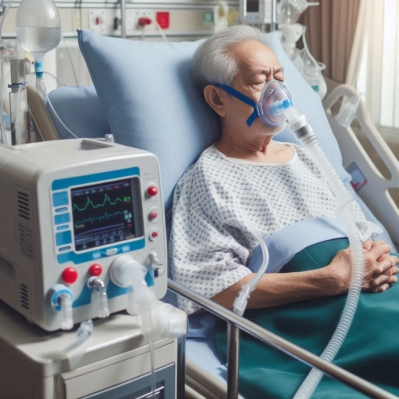Estate of Dunn v. Thomas Hospital
In this wrongful death case, on March 14, 2024, the Alabama jury returned a verdict for Thomas Hospital after finding no negligence in the supervision of Patrick Dunn Sr.’s oxygen intake.
Case Background
A medical negligence lawsuit was filed against Thomas Hospital before the Alabama, Baldwin County Circuit Court after the death of Patrick Dunn, Sr in 2020. Judge Jody W. Bishop presided over this case. [Case number: 21-900188]
Cause
On May 21, 2020, Patrick Dunn, Sr. experienced shortness of breath. As his condition deteriorated, an ambulance transported him to the emergency room at Thomas Hospital in Fairhope. At that time, his oxygen level was normal.
Dunn was admitted to the hospital with respiratory failure and congestive heart failure. He stayed there for three days until May 24, 2020, when he again struggled with breathing difficulties.
Doctors found that Dunn had low oxygen saturation. At approximately 1:35 p.m., they placed him on a BiPAP machine to aid his breathing and improve his oxygen levels. Despite this, Dunn’s oxygen saturation continued to drop.
The technician responsible for monitoring Dunn did not report the ongoing decline in his oxygen levels until 1:52 p.m., seventeen minutes later.
At 1:54 p.m., staff discovered that although Dunn was wearing the BiPAP mask, the machine was turned off. They then switched him to high-flow oxygen as the code team arrived. Two minutes later, at 1:56 p.m., it was found that the high-flow oxygen apparatus was in “standby” mode and not providing any oxygen.
By 2:00 p.m., Dunn went into cardiac arrest. He was found slumped over in bed, without a pulse, and was pronounced dead at 2:06 p.m. The entire incident, from the BiPAP machine’s initial use to Dunn’s death, occurred within about thirty minutes.
Dunn’s estate filed a lawsuit against Thomas Hospital, criticizing the medical team for their repeated failures to monitor his oxygen intake properly.
Damages
The Defendant’s alleged negligence and failure to properly monitor Dunn led to his demise. His estate claimed damages for his wrongful death and loss of consortium.
Key Arguments and Proceedings
Legal Representation
- Plaintiff(s): Estate of Patrick Dunn, Sr.
- Counsel for Plaintiff(s): Joseph F. McGowin | Jennifer B. Jayjohn
- Defendant(s): Thomas Hospital
- Counsel for Defendant(s): A. Edwin Stuardi, II | Russell C. Buffkin | Karen T. Luce | Susan Cassidy Cooley
Claims
Dunn’s estate sued Thomas Hospital, accusing its medical team of repeatedly failing to monitor his oxygen intake properly. During the litigation, the hospital filed a motion for judgment as a matter of law, citing an executive order signed by Governor Ivey. This order provided immunity from liability to healthcare providers for patient deaths related to COVID.
The hospital also sought immunity under the Alabama Coronavirus Immunity Act (ACIA), passed by the legislature. This statute granted immunity to healthcare providers for deaths resulting from COVID treatment.
In response, Dunn’s estate challenged the hospital’s defense on several grounds. Firstly, the estate argued that Dunn did not have COVID and did not die from it. Therefore, neither the executive order nor the ACIA applied.
The estate also contended that the executive order was unconstitutional because the executive branch could not exercise legislative power. Additionally, the estate argued that the ACIA did not apply since it was enacted nearly nine months after Dunn’s death.
Based on these points, the estate filed its own motion for judgment as a matter of law and sought to dismiss the hospital’s immunity defense.
Defense
The hospital defended itself by arguing that its treatment of Dunn did not breach the standard of care. Additionally, the hospital sought immunity under the Alabama Coronavirus Immunity Act. The hospital also filed a motion for judgment as a matter of law, referencing an executive order signed by Governor Ivey.
In response, Dunn’s estate filed its own motion for judgment as a matter of law, aiming to strike down the hospital’s immunity defense. The court denied both motions, and the litigation proceeded.
Jury Verdict
The case was tried in Bay Minette. On March 14, 2024, the Alabama jury returned a verdict for the hospital. No negligence was found. Accordingly, the court entered a defense judgment.
Court Documents:
Available upon request







Leave A Comment